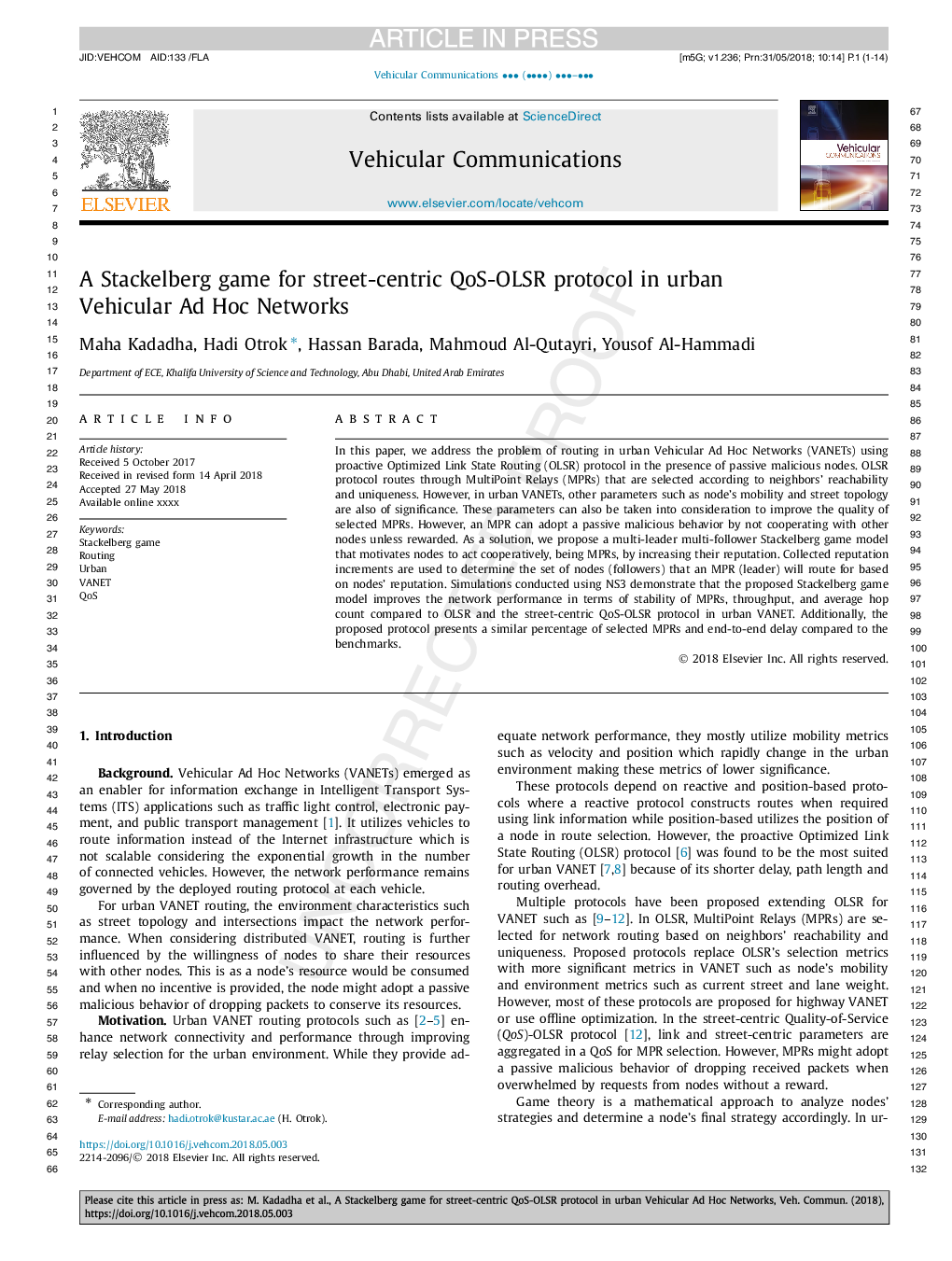| Article ID | Journal | Published Year | Pages | File Type |
|---|---|---|---|---|
| 6890081 | Vehicular Communications | 2018 | 14 Pages |
Abstract
In this paper, we address the problem of routing in urban Vehicular Ad Hoc Networks (VANETs) using proactive Optimized Link State Routing (OLSR) protocol in the presence of passive malicious nodes. OLSR protocol routes through MultiPoint Relays (MPRs) that are selected according to neighbors' reachability and uniqueness. However, in urban VANETs, other parameters such as node's mobility and street topology are also of significance. These parameters can also be taken into consideration to improve the quality of selected MPRs. However, an MPR can adopt a passive malicious behavior by not cooperating with other nodes unless rewarded. As a solution, we propose a multi-leader multi-follower Stackelberg game model that motivates nodes to act cooperatively, being MPRs, by increasing their reputation. Collected reputation increments are used to determine the set of nodes (followers) that an MPR (leader) will route for based on nodes' reputation. Simulations conducted using NS3 demonstrate that the proposed Stackelberg game model improves the network performance in terms of stability of MPRs, throughput, and average hop count compared to OLSR and the street-centric QoS-OLSR protocol in urban VANET. Additionally, the proposed protocol presents a similar percentage of selected MPRs and end-to-end delay compared to the benchmarks.
Keywords
Related Topics
Physical Sciences and Engineering
Computer Science
Computer Networks and Communications
Authors
Maha Kadadha, Hadi Otrok, Hassan Barada, Mahmoud Al-Qutayri, Yousof Al-Hammadi,
